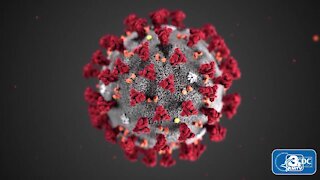Premium Only Content

Delta Variant - It's The NEW Covid !
Delta Variant COVID
SARS-CoV-2 Delta variant, also known as lineage B.1.617.2, is a variant of lineage B.1.617 of SARS-CoV-2, which causes COVID. It was first detected in India in late 2020. The World Health Organization (WHO) named it the Delta variant on 31 May 2021.
What’s different about DELTA Variant Patients?
The delta variant is almost like a whole new COVID virus, as it behaves very differently from the previous COVID strains. It has at least three mutations on its spike protein, and more specifically, on its receptor-binding domain. That’s the part of the spike protein that binds to the ACE2 receptor on the cells in your body. The delta variant’s mutations help it bind more efficiently to the ACE2 receptor and allow the virus to enter the cell more easily. Also, its mutations allow it to better evade the body’s immune system.
The delta variant has caused COVID cases in the USA to rise over 300% over the past month, along with similar increases in hospitalizations and deaths. The Delta variant is estimated to be at least 60% more transmissible. One CDC document suggests the Delta variant is about as transmissible as chickenpox -- with each infected person infecting, on average, 8 or 9 other people. Compare that to the original strain of COVID, which was about as contagious as the common cold, with each infected person infecting two others, on average.
Studies on people infected with delta variant showed that the fully vaccinated had as much virus in their bodies as unvaccinated people did. That doesn’t mean worse infection, though, if you’re vaccinated. But what the significance of those high viral loads leads to the higher transmission of the virus, vaccinated or not. Even if they don’t have symptoms. It's why the CDC says that even vaccinated people should wear masks in areas of sustained or high transmission.
Also, a study in China found that the viral loads of people infected with Delta were 1,000 times higher than people infected at the beginning of the pandemic, and delta transmits in four days, compared to six days for the original strain. Three somewhat older studies from Canada, Singapore, and Scotland show that people infected with the Delta variant are more likely to end up in the hospital.
Does it make unvaccinated people more prone to death compared to the original strain?
Hard to know since there are currently no studies showing that one way or another. It’s also trickier to answer this question because you’re comparing apples to oranges. You’re comparing different strains with the original strain; no one was vaccinated in 2020. Also, at the beginning of the covid pandemic, we weren’t using things like dexamethasone and tocilizumab, two drugs that we now use to treat COVID, because we now know they reduce mortality. With the mRNA vaccines we have, they are about 95% effective at preventing serious COVID illness. So we know that even before the delta covid variant emerged, there will be breakthrough cases.
The CDC released a study examining an outbreak in Massachusetts where 74% of people who got infected had been fully vaccinated -- and four of them ended up in the hospital. Testing showed that the Delta variant made up 90% of those cases. But overall, still, MOST of the virus is spread by unvaccinated people. The CDC reported a total of 6,587 breakthrough cases, including 6,239 hospitalizations and 1,263 deaths as of July 26. At that time, more than 163 million people in the US were fully vaccinated against Covid.
But here is pretty impressive. STAT:
Less than 0.004% of people who have been fully vaccinated experienced breakthrough infections resulting in hospitalization, and less than 0.001% have died from the disease.
-
 2:06
2:06
KMTV
3 years agoDelta COVID variant arrives in Douglas County
486 -
 3:32
3:32
KNXV
3 years agoCOVID Delta variant creates concern
2152 -
 2:18
2:18
WKBW
3 years agoDelta variant linked to uptick in COVID cases
1643 -
 1:49
1:49
KJRH
3 years agoConcern over Delta variant as COVID cases rise
4647 -
 1:30
1:30
Reuters
3 years agoDelta COVID variant becoming globally dominant -WHO
1.14K19 -
 2:14
2:14
WPTV
3 years agoTreasure Coast health officials warn residents of new Delta COVID variant
1131 -
 2:08
2:08
Newsy
3 years agoMore Dangerous Delta Variant Of COVID Now Spreading
4.09K50 -
 1:32
1:32
KGUN
3 years agoUArizona expert urges vaccines to combat COVID Delta variant
3832 -
 0:40
0:40
Newsy
3 years agoCOVID Hospitalizations Increasing Again As Delta Variant Spreads
3.81K27 -
 44:20
44:20
Candace Show Podcast
2 hours agoRyan Reynolds Wants to COME OUT… Of The Lawsuit | Candace Ep 163
31.3K23